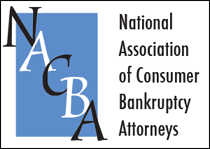How Will Bankruptcy Affect My Small Business?
Facing bankruptcy can be a daunting thing, especially if you’re the owner of a small business. If you’re facing financial hardship in Washington State and considering filing bankruptcy, here is what you need to know about how bankruptcy will affect your small business:
Sole Proprietorship Businesses
A sole proprietorship is the most common type of small business, and refers to a business that is owned by a single person. In a sole proprietorship, the owner is entitled to all profits, and there is no financial distinction between the owner and the business. As such, the bankruptcy of a proprietorship is the same as filing personal bankruptcy. When filing, you will have the options of filing for Chapter 7 bankruptcy, or Chapter 13 bankruptcy, the latter of which is intended for people who will pay their debts back eventually. If you file for Chapter 7, the federal government will appoint a trustee to your case. In some instances, the trustee might insist that you close your business while your debts are assessed. Usually, this assessment takes between two and six months. If you have a business that has a low chance of accumulating more debt, then the trustee may allow the business to stay open. Any profits that are made during continued operation will become part of the bankruptcy estate, or the assets and funds that are used to pay your creditors.
Partnership Businesses
Unlike sole proprietorships, partnerships are businesses that are owned by two or more people. Because more than one person is invested in the business, a partnership cannot file for personal bankruptcy. When filing for bankruptcy, a partnership will also declare Chapter 7. A trustee will be appointed to your business’s bankruptcy case, and assets will be liquidated to appease creditors. However, unlike a sole proprietorship, your personal assets are not tied to the business. Unfortunately, though, the likelihood of a partnership business closing permanently in the event of bankruptcy is much higher than is the likelihood of a sole proprietorship business closing.
Chapter 11 Bankruptcy
In addition to Chapter 7 and Chapter 13 bankruptcy, small businesses also have the option to declare Chapter 11 bankruptcy. Chapter 11 is only available to limited liability companies, corporations, and partnership business; sole proprietors cannot file for Chapter 11. Like Chapter 13 bankruptcy, Chapter 11 allows business to repay debts, modify payment terms, and continue the operation of the business. However, Chapter 11 is time consuming and expensive, and can be a less realistic options for small business owners, although it’s often preferred by corporations.
Additional Rules in Washington State
For the most part, the federal government is in charge of regulating bankruptcy law. However, in Washington State, the state has its own set of exemptions for the types of property you can keep when filing bankruptcy. When filing for bankruptcy in Washington, you can choose between the federal exemptions or the Washington State exemptions, but cannot choose a combination of both. For questions about bankruptcy law, you should consult a small business or bankruptcy lawyer.
Sources
http://www.irs.gov/Businesses/Small-Businesses-&-Self-Employed/Partnerships
http://www.sba.gov/content/sole-proprietorship-0
http://smallbusiness.chron.com/happens-business-files-bankruptcy-41493.html
http://smallbusiness.chron.com/can-keep-business-file-chapter-7-bankruptcy-43691.html


